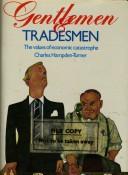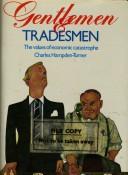Check nearby libraries
Buy this book

This book is an early example of "dilemma theory," which Hampden-Turner later developed with Fons Trompenaar. It also focuses on British macroculture ("corporate culture," "economic culture") which then, contributes to his much later co-authored books on business macrocultures around the world. Hampden-Turner's earlier work featured the 10-part theory that he developed in his dissertation and then published as Radical Man. That then evolved toward his analysis of values (for each of the 10 parts of the theory) into (sometimes) five catetories: (the center of bipolar values, & then both constructive and destructive (my terms) inflation and deflation of the polarities). So there is a positive core of values, which he sees as 2 sided, and in the core he puts a center and two sides which are complementary to each other. Then on the fringes are 2 extremes representing the two sides, which are antagonistic to each other. On this view of values see also the appendix to Sane Assylum, his map of the "lethal structure of values" in Maps of the Mind, and much of his later writing with Fons Trompenaar.
This book is a bit of a shock for fans of Radical Man, as it seems that Hampden-Turner sold out. I find only a little that is written that explains the change, though there is some. Radical Man is, obviously, not something that wins you lucraative consulting contracts with major corporations! On the other hand, in the chapter 10 of Radical Man, Hampden-Turner briefly describes "Conservatism as an antidote to the pathologies of the Left," and supports the theory we find here and in his later work. Another part of the explanation is found in the nature of British elitism, with it's Royal connections, as explained here, and in contrast to the US, which was the context for Radical Man. In this sense, then, Gentlemen and tradesmen is the most extreme case on the non-radical side of the ledger of all Hampden-Turner's books. What ties them all together are his continuing theories of synergy, integration and reconciliation.
This book includes a chapter on British video culture, and major themes are related to British literature. I was struck by the large number of examples related to this book with which I am familiar. That is, I can apply his thesis in many contexts, as I've been a fan of British TV and movies for some time. So the thesis here is very relevant to, for example: "Are You Being Served," "Keeping Up Appearances," "Downton Abbey," "The Secret Garden," all of Jane Austin, etc. Elsewhere, then, (in later books,) the theory is applied in US and other cultural contexts.
Check nearby libraries
Buy this book

| Edition | Availability |
|---|---|
| 1 |
aaaa
|
|
2
Gentlemen & tradesmen: the values of economic catastrophe
1983, Routledge & Kegan Paul
in English
0710095791 9780710095794
|
zzzz
|
Book Details
Edition Notes
Cataloging based on CIP information.
Includes index.
Classifications
The Physical Object
Edition Identifiers
Work Identifiers
Community Reviews (0)
| January 17, 2023 | Edited by ImportBot | import existing book |
| January 7, 2014 | Edited by Brad Wilson | Edited without comment. |
| January 7, 2014 | Edited by Brad Wilson | Edited without comment. |
| September 19, 2010 | Edited by Brad Wilson | I added the part about business macrocultures |
| December 10, 2009 | Created by WorkBot | add works page |










